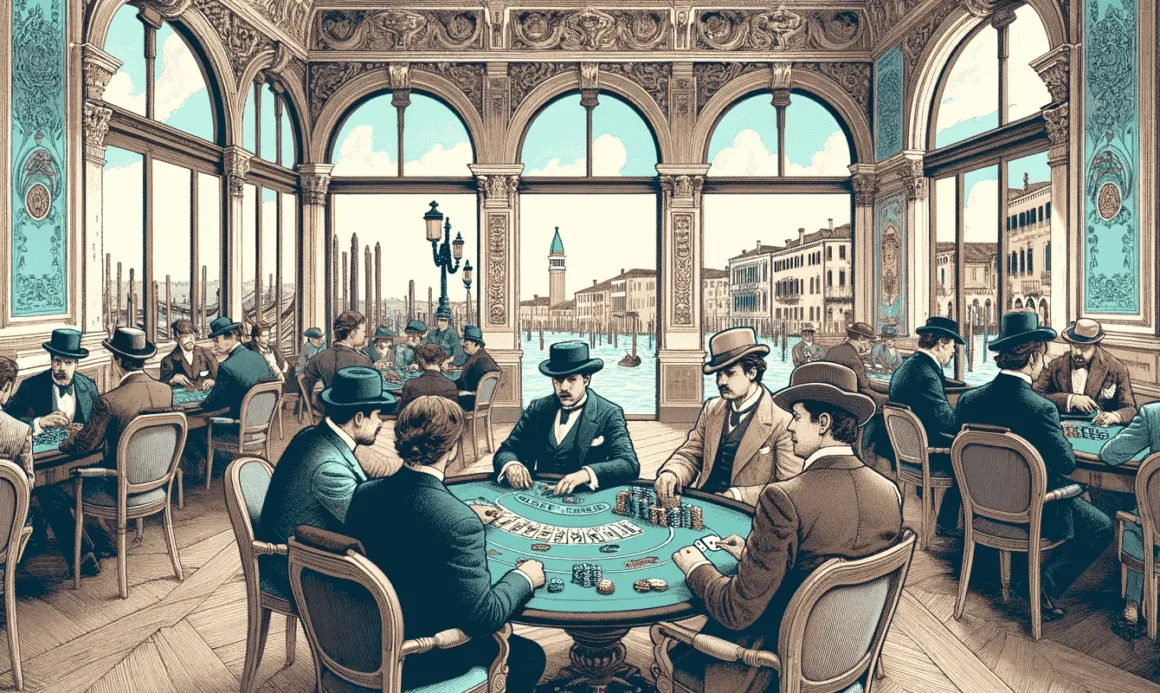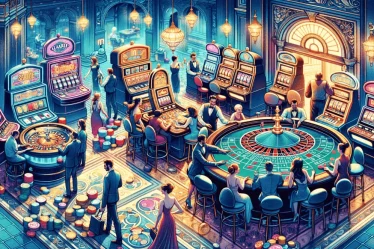
The world of casinos has always been a fascinating one, with its glitz, glamour, and high stakes. From the bright lights of Las Vegas to the opulent gambling houses of Macau, casinos have long been associated with wealth and luxury. But have you ever wondered when and where the first casino was established? The answer might surprise you.
In this article, we will take a trip back in time and explore the origins of the first casino in the world. We will delve into its rich history, from its humble beginnings to its evolution into the modern-day gambling industry. So sit back, grab your favorite beverage, and let’s embark on a journey to discover the birthplace of casinos.

The Birth of the First Casino
Before we dive into the details of the first casino, it’s essential to understand what casinos are and how they came to exist. The term “casino” is derived from the Italian word “casa,” which means house. It refers to a building or facility where people gather to engage in various forms of gambling activities.
Gambling itself has been around for centuries, with evidence of its existence dating back to ancient civilizations. The earliest records of gambling can be traced back to ancient China, where games like Keno and Pai Gow were played. However, it wasn’t until the 17th century that the concept of casinos as we know them today emerged.
The first casino in the world was established in Venice, Italy, in 1638. Known as the Ridotto, it was not only the first casino but also the first government-owned gambling house. The Ridotto was created to control the rampant illegal gambling that was taking place in the city at the time.
The Evolution of the First Casino
The Ridotto was an instant success, with wealthy nobles and aristocrats flocking to the establishment to indulge in their favorite pastime. However, the Ridotto was not your typical casino. Instead of card games like blackjack and poker, it mainly offered games of chance like bassetta and biribi.
The establishment also had strict rules and regulations, with dress codes and a ban on women. Despite these restrictions, the Ridotto remained popular for over a century until it was closed down by the authorities in 1774. But its closure did not mark the end of the first casino.
Over the years, casinos spread to other parts of Europe, with France being at the forefront. In the late 18th century, private gambling houses began to emerge in the country, offering a wide range of games and catering to all social classes. These establishments were known as “salons,” and they paved the way for the modern-day casino industry.
In the 19th century, casinos continued to evolve, with the introduction of new games and the use of state-of-the-art equipment. However, it wasn’t until the 20th century that casinos truly became global phenomena, thanks to advances in technology and the rise of tourism.
The First Casino in America

The United States played a significant role in the evolution of casinos, especially in the 20th century. It all began in 1931 when the state of Nevada legalized gambling, paving the way for the birth of Las Vegas. Initially, Las Vegas was a small desert town, but it quickly transformed into the casino capital of the world.
The first casino to open its doors in Las Vegas was the Northern Club, which started as a humble saloon in 1931. Other casinos followed suit, including El Rancho Vegas, which opened in 1941 and is widely considered the first modern casino in Vegas. As more and more casinos emerged, the city’s economy boomed, and Las Vegas became synonymous with gambling and entertainment.
The Emergence of Tribal Casinos
While Las Vegas continued to thrive, the rest of the country was not as open to gambling. It wasn’t until the late 1970s and early 1980s that the tide began to turn. In 1978, New Jersey legalized casino gambling in Atlantic City, and other states followed suit, albeit slowly.
But it was a landmark court case in 1987 that opened the door for Native American tribes to operate their own casinos. The Supreme Court ruled that tribes were sovereign nations and could, therefore, operate casinos on their land without state interference. This ruling led to the explosion of tribal casinos throughout the country, generating billions of dollars in revenue.
The Modern-Day Casino Industry

Today, the global casino industry is estimated to be worth over $150 billion, with thousands of establishments worldwide. From the bright lights of Macau to the glitz and glamour of Monte Carlo, casinos have become a way of life for many.
The Rise of Online Casinos
As technology continues to advance, so does the casino industry. In recent years, there has been a significant shift towards online gambling, with the rise of online casinos. These virtual gambling platforms allow players to access their favorite casino games from the comfort of their homes, making it more convenient than ever to gamble.
Online casinos offer a wide range of games, including slots, blackjack, roulette, and even live dealer games. They also provide lucrative bonuses and promotions, making them attractive to both new and seasoned players. With the convenience and accessibility that online casinos offer, it’s no surprise that they have become a popular choice for gamblers worldwide.
The Future of Casinos
The future of the casino industry looks promising, with new and innovative ideas being introduced every day. One such concept is the use of virtual reality (VR) technology in casinos. VR allows players to experience the thrill of a real casino without having to leave their homes.
Another trend that is gaining popularity is the integration of cryptocurrencies into the casino industry. More and more casinos are now accepting digital currencies like Bitcoin as a form of payment. This not only makes transactions faster but also provides an added layer of security for players.
The Dark Side of Casinos
While casinos have brought about many positive changes in the world, they have also had their fair share of controversies. From money laundering and organized crime to problem gambling, the industry has been marred by several issues over the years.
Problem Gambling
Problem gambling, or gambling addiction, is a prevalent issue in the casino industry. It refers to the uncontrollable urge to gamble, despite its negative consequences. In extreme cases, it can lead to financial ruin, broken relationships, and even mental health problems.
Casinos have been criticized for exploiting vulnerable individuals, particularly low-income and elderly people, who are more susceptible to developing gambling addictions. To combat this issue, responsible gambling measures such as self-exclusion programs and gambling addiction helplines have been implemented in many jurisdictions.
Conclusion: A Never-Ending Journey
The first casino in the world may have been established over three centuries ago, but the industry continues to thrive and evolve. From its humble beginnings in Venice to the glitz and glamour of Las Vegas and beyond, casinos have come a long way.
Today, casinos are not just about gambling; they are also major contributors to the economy, providing employment opportunities and generating billions of dollars in revenue. With technological advancements and innovative ideas, the future of the casino industry looks brighter than ever.
However, with its immense wealth and power comes great responsibility. As the industry continues to grow, it’s crucial to address and tackle the issues that come with it, such as problem gambling and illegal activities. Only then can the first casino in the world truly be hailed as a symbol of entertainment and prosperity, rather than controversy and exploitation.


